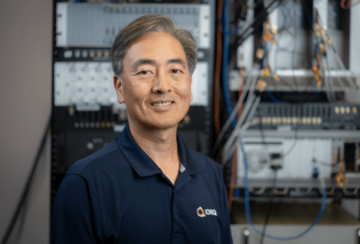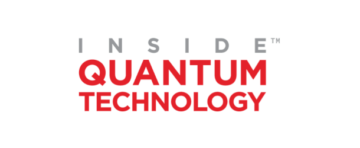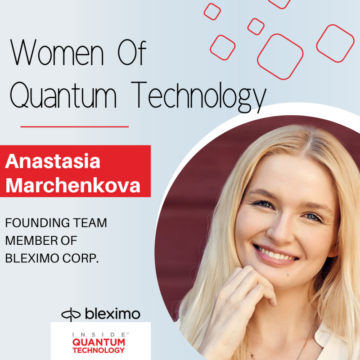
By Sandra Helsel posted 21 May 2024
IDQ launches quantum-safe communication ecosystem to facilitate adoption of Quantum networks, with HEQA Security, LuxQuanta, Quantum Optics Jena, and ThinkQuantum
To accommodate the growing demand for telecom-grade solutions that enable fast and cost-effective migration to quantum-safe communications, ID Quantique’s new Clarion KX software platform now supports multi-vendor Quantum Key Distribution (QKD) interoperability. On May 14, IDQ welcomed new technology partners: HEQA Security, LuxQuanta, Quantum Optics Jena, and ThinkQuantum to their Clarion KX ecosystem.
ID Quantique Clarion KX platform leverages an open and service-based architecture to support a cost-effective scale up of QKD networks. It provides for orchestration and management of out-of-band quantum-key delivery in real time, regardless of the underlying QKD solutions or the location of the consuming encryption appliances. With its support for heterogeneous QKD infrastructure in complex and SLA demanding environments, IDQ’s Clarion KX platform also enables telecom operators to generate new revenue streams by providing new Quantum-Safe as a Service offerings to their B2B customers looking for long-term security assurance.
With ID Quantique’s expanded ecosystem and open interfaces, customers can now also leverage hybrid QKD networks, including continuous variables (CV) QKD, discrete variables (DV) QKD or Entanglement based QKD. See original announcement here.
Pasqal Partners with Aramco to Install Saudi Arabia’s First Quantum Computer

Pasqal has signed an agreement with Aramco, one of the world’s leading integrated energy and chemicals companies, to install the first quantum computer in the Kingdom of Saudi Arabia. The agreement will see Pasqal install, maintain, and operate a 200-qubit quantum computer, which is scheduled for deployment in the second half of 2025. Click for more details.
Pasqal and Aramco intend to leverage the quantum computer to identify new use cases, and have an ambitious vision to establish a powerhouse for quantum research within Saudi Arabia. The agreement also accelerates Pasqal’s activity in Saudi Arabia, having established an office in the Kingdom in 2023, and follows the signing of a Memorandum of Understanding between the companies in 2022 to collaborate on quantum computing capabilities and applications in the energy sector. In 2023, Aramco’s Wa’ed Ventures also participated in Pasqal’s Series B fundraising round. Read announcement here.
In Other News: WSJ reports “Nvidia’s Co-Founder Donates $75M to RPI with Goal of Transitioning Hudson Valley into “Quantum Valley”
 Co-founder of the AI chip maker Nvidia, Curtis Priem, is donating more than $75 million so Rensselaer Polytechnic Institute can have a quantum-computing system made by IBM. This would be the first such device on a university campus anywhere in the world.
Co-founder of the AI chip maker Nvidia, Curtis Priem, is donating more than $75 million so Rensselaer Polytechnic Institute can have a quantum-computing system made by IBM. This would be the first such device on a university campus anywhere in the world.
Priam’s goal is to establish New York’s Hudson Valley as an epicenter of quantum-computing research in the country, he said. His vision is to create a critical mass of talent that will lead to spinoff businesses. “We’ve renamed Hudson Valley as Quantum Valley,” Priem said in an interview. “It’s up to New York whether they want to become Silicon State—not just a valley.”
RPI has now installed an IBM Quantum System One device with 127 qubits. The school will spend $15 million a year to rent the computer, covered by Priem, and it will be upgraded to a more advanced system in several years. Click to read WSJ May 19 article.
In Other News: Utility Dive reports “Grid modernization plans must consider quantum computing, AI, other innovations”
Overall electricity consumption is increasing at a furious pace; a report from Grid Strategies says it’s expected to grow 4.7% over the next five years, nearly double what utilities and grid operators expected. New electricity demands from cars, buildings, the onshoring of manufacturing and increased use of cloud computing, are driving this rise in demand. Data centers are being built across the country at such a pace that their energy consumption is expected to double by 2035
The U.S. needs an expanded transmission system, with new well-planned regional and interregional transmission lines. Emerging technologies, including quantum and AI, can help ensure that an improved system is able to meet our evolving energy needs.
Solving transmission problems must be a multi-pronged approach. Together, quantum and AI could expeditiously and efficiently meet new challenges facing the grid, such as updating obsolete electricity infrastructure, efficiently integrating variable clean energy resources and deploying the lowest-cost energy source. Click here to read Utility Dive May 20 article.
- SEO Powered Content & PR Distribution. Get Amplified Today.
- PlatoData.Network Vertical Generative Ai. Empower Yourself. Access Here.
- PlatoAiStream. Web3 Intelligence. Knowledge Amplified. Access Here.
- PlatoESG. Carbon, CleanTech, Energy, Environment, Solar, Waste Management. Access Here.
- PlatoHealth. Biotech and Clinical Trials Intelligence. Access Here.
- Source: https://www.insidequantumtechnology.com/news-archive/quantum-news-briefs-may-21-2024-idq-launches-quantum-safe-communication-ecosystem-to-facilitate-adoption-of-quantum-networks-with-heqa-security-luxquanta-quantum-optics-jena-thinkquantum-pas/
- :has
- :is
- $UP
- 1
- 12
- 127
- 14
- 15%
- 16
- 19
- 2%
- 20
- 2022
- 2023
- 2024
- 2025
- 21
- 224
- 24
- 29
- 34
- 4
- 5
- 51
- 6
- 628
- 7
- 8
- 9
- a
- Able
- accelerates
- accommodate
- across
- activity
- Adoption
- advanced
- Agreement
- AI
- All
- also
- ambitious
- an
- and
- Announcement
- anywhere
- appliances
- applications
- approach
- architecture
- ARE
- article
- AS
- assurance
- At
- b
- B2B
- based
- BE
- become
- being
- between
- buildings
- built
- businesses
- button
- by
- Campus
- CAN
- capabilities
- cars
- cases
- categories
- Centers
- challenges
- chemicals
- chip
- clean
- clean energy
- Cloud
- cloud computing
- Co-founder
- collaborate
- COM
- Communication
- Communications
- Companies
- complex
- computer
- computing
- Consider
- consuming
- consumption
- continuous
- cost-effective
- could
- country
- covered
- create
- critical
- Customers
- data
- data centers
- delivery
- Demand
- demanding
- demands
- deploying
- deployment
- device
- discrete
- distribution
- dive
- donating
- double
- driving
- ecosystem
- efficiently
- electricity
- electricity consumption
- Elm
- emerging
- emerging technologies
- enable
- enables
- encryption
- energy
- Energy Consumption
- ensure
- entanglement
- environments
- epicenter
- establish
- established
- Ether (ETH)
- evolving
- expanded
- expected
- facilitate
- facing
- false
- FAST
- First
- five
- follows
- For
- from
- Fundraising
- further
- generate
- generative
- Generative AI
- goal
- Grid
- Grow
- Growing
- Half
- Have
- having
- he
- help
- here
- High
- his
- HTML
- HTTPS
- Hybrid
- IBM
- ibm quantum
- ID
- identify
- image
- improved
- in
- In other
- Including
- increased
- increasing
- Infrastructure
- inside
- Inside Quantum Technology
- install
- installed
- Institute
- integrated
- Integrating
- intend
- interfaces
- Interoperability
- intersections
- Interview
- into
- IT
- ITS
- jpg
- just
- Key
- Kingdom
- Kx
- launches
- lead
- leading
- Leverage
- leverages
- lines
- LINK
- location
- long-term
- looking
- made
- maintain
- maker
- management
- manufacturing
- Mass
- max-width
- May 2024
- May..
- Meet
- Memorandum
- memorandum of understanding
- migration
- million
- modernization
- more
- must
- nearly
- needs
- networks
- New
- New York
- New York’s
- news
- next
- now
- Nvidia
- obsolete
- of
- Offerings
- Office
- on
- ONE
- open
- operate
- operators
- optics
- or
- orchestration
- original
- Other
- our
- over
- Pace
- participated
- partnered
- partners
- Pasqal
- plans
- platform
- plato
- Plato Data Intelligence
- PlatoData
- posted
- powerhouse
- PRNewswire
- probe
- problems
- provides
- providing
- Quantum
- Quantum Computer
- quantum computing
- quantum networks
- Quantum optics
- quantum research
- quantum technology
- qubits
- Read
- real
- real-time
- Regardless
- regional
- Rent
- report
- Reports
- research
- Resources
- revenue
- Rise
- round
- ROW
- s
- Said
- Saudi
- Saudi Arabia
- says
- Scale
- scheduled
- School
- SEC
- Second
- sector
- security
- see
- Series
- Series B
- service
- several
- signed
- signing
- Silicon
- So
- Software
- software platform
- Solutions
- Source
- spend
- strategies
- streams
- such
- support
- Supports
- system
- Talent
- Technologies
- Technology
- telecom
- than
- that
- The
- the world
- their
- they
- this
- time
- to
- together
- transitioning
- transmission
- true
- u.s.
- underlying
- understanding
- university
- updating
- upgraded
- us
- use
- utilities
- utility
- Valley
- variable
- variables
- Ventures
- vision
- want
- welcomed
- What
- whether
- which
- will
- with
- within
- world
- world’s
- would
- WSJ
- Yahoo
- year
- years
- york
- zephyrnet












